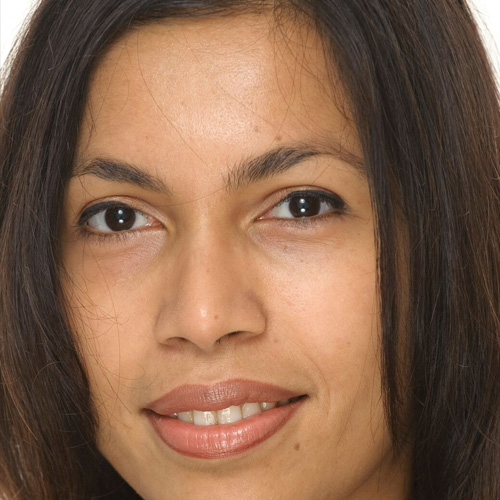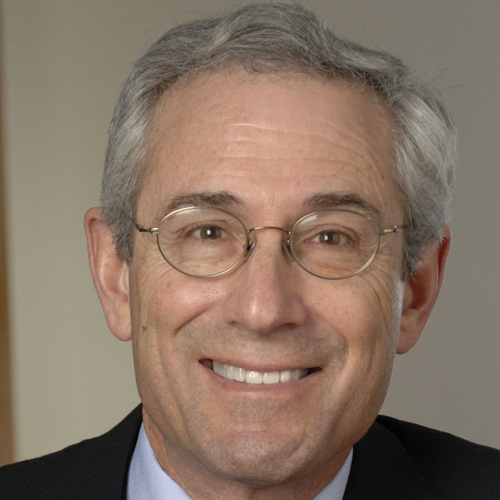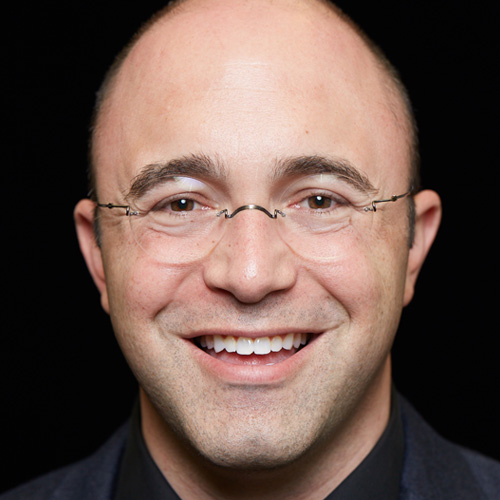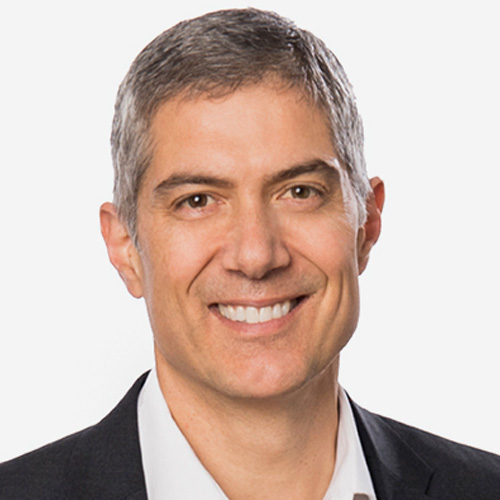The Web of Health

The Web of Health
Topics in health and medicine are increasingly searched for and tracked online, and relevant content is often delivered via digital means. This dynamic offers new opportunities to improve our health and the delivery of medicine; for example, by learning about aspect of people’s health status that are otherwise difficult to track, by facilitating rapid collection and dissemination of time-critical epidemiological data, and by allowing novel interventions to improve health.
This year, Social Good is an overarching theme of The Web Conference. We believe that strengthening the connection between the healthcare and the web research communities, with a dedicated one-day event called The Web of Health, will advance the use of the Web for Social Good in a unique manner.
The goal of the Web of Health event is to exchange research paradigms among participants from different fields, ranging from ML and AI, to general computer science, to medicine and public health. The event program will include keynotes and invited talks, a discussion panel, as well as a poster reception.
Organizers
Evgeniy Gabrilovich Google
Nigam Shah Stanford University
The Web of Health Schedule
Schedule
-
Opening remarks
Evgeniy Gabrilovich and Nigam Shah
- 10:30 - 10:35
-
More info [ + ]
Plenary
Solving The Digital Transformation of Healthcare by 2025
Kevin Schulman • Stanford University
Health care costs place an extraordinary burden on American families. We all have great hopes for a digital transformation of medicine that will solve this challenge, yet there is little evidence to date that digital technologies have had the impact that has been envisioned. A major reason for this failure is that we are trying to solve this problem within the constraints of the existing delivery system. We have argued that this has resulted from a focus of applying technology to existing resources in the health care system such as hospitals. An alternative approach is to focus technology instead on clinical services needed by all of us-prevention, acute care and chronic care. Building technology around services will result in a new healthcare ecosystem with an opportunity to use technology to optimize clinical services. Based on this framework, it is easy to envision a pathway to having 50% of health care (by dollar value) delivered digitally by 2025.
Dr. Schulman was appointed as Professor of Medicine, Associate Chair of Business Development and Strategy in the Department of Medicine, Director of Industry Partnerships and Education for the Clinical Excellence Research Center (CERC) at the Stanford University School of Medicine, and, by courtesy, Professor of Economics at Stanford’s Graduate School of Business in June, 2018.
Dr. Schulman’s research interests include organizational innovation in health care, health care policy and health economics. With 300 original articles, 80 review articles/commentaries, and 40 case studies/book chapters, Kevin Schulman has had a broad impact on health policy (h-index = 61). His peer-reviewed articles have appeared in the New England Journal of Medicine, JAMA, and Annals of Internal Medicine. He is a member of the editorial/advisory boards of the American Heart Journal, Health Policy, Management and Innovation (www.HMPI.Org), and Senior Associate Editor of Health Services Research.
At Duke’s Fuqua School of Business, Dr. Schulman oversaw the growth of the health sector management program, graduating almost 1500 students. He is the Founding Director of the unique Master of Management in Clinical Informatics program (MMCi), originally offered through the Fuqua School of Business and now housed in the Duke University School of Medicine. He has served as a Visiting Professor in General Management at Harvard Business School from 2013-2016, and a visiting scholar from 2016-2018.
He is the Founding President of the Business School Alliance for Health Management (http:/ /www.BAHM-Alliance.Org), which is a consortium of the leading business schools offering health management programs.
He is an elected member of ASCI and AAP.
- 10:35 - 11:20
-
More info [ + ]
Invited talk
Scientists as Patients and Patients as Scientists
Noemie Elhadad • Columbia University
In this talk I will discuss the perspectives that patients and scientists can contribute to advancing medicine. I argue that while widely different, there can be tremendous value for each persona to re-imagine themselves as the other. Using my personal experience as a scientist and as a patient with an enigmatic chronic condition, I will describe the Citizen Endo project and how, together with 8,000 patients throughout the world, we can identify new questions, generate novel disease insights, and imagine innovative support mechanisms.
Noémie Elhadad is Associate Professor and co-interim Chair of the Columbia University Department of Biomedical Informatics, affiliated with Computer Science and the Data Science Institute. Her research is at the intersection of machine learning, technology, and medicine. She investigates ways in which observational clinical data (e.g., electronic health records) and patient-generated data (e.g., online health community discussions, mobile health data) can enhance access to relevant information for patients, clinicians, and health researchers alike and can impact care and health of patients.
- 11:30 - 11:50
-
More info [ + ]
Invited talk
BoostMeUp - Improving Cognitive Performance in the Moment by Unobtrusively Regulating Emotions
Tanzeem Choudhury • Cornell University and HealthRhythms
A person’s emotional state can strongly influence their ability to achieve optimal task performance. Aiming to help individuals manage their feelings, different emotion regulation technologies have been proposed. Despite the well-known influence that emotions have on performance, there are no studies examining whether an emotion regulation technology can also enhance user’s cognitive performance in the moment. In this talk, I will discuss the technologies we are developing to regulate anxiety and simultaneously improve cognitive performance. The ability to influence self-perception of stress and anxiety, cognitive performance and physiology can provide new ways to introduce preventative health technology into everyday lives of people.
Tanzeem Choudhury is an associate professor in Computing and Information Sciences at Cornell University and a co-founder of HealthRhythms Inc. At Cornell, she directs the People-Aware Computing group, which works on inventing the future of technology-assisted wellbeing. Tanzeem received her PhD from the Media Laboratory at MIT. She has been awarded the MIT Technology Review TR35 award, NSF CAREER award, TED Fellowship, Kavli fellowship and Ubicomp 10 year Impact Award.
- 11:50 - 12:10
-
More info [ + ]
Invited talk
Integrating Digital Health into Clinical Practice
Maya Leventer-Roberts • Clalit Health Services
Digital platforms and innovative technological solutions have been lauded worldwide as wonder drugs which can improve health care delivery and revolutionize patient experience, all while reducing costs. The Clalit Research Institute (CRI) transforms this theoretical vision into dramatic real world practice. CRI delivers data-driven insights into the integrated electronic health care delivery system of Clalit Health Services, Israel's largest healthcare organization, across the entire patient journey and through the full life span to over half of the population, or approximately 4.5 million people. Our multidisciplinary team of experts in clinical medicine, data science, epidemiology, and advanced analytics, work directly with clinicians in the field using integrated online platforms to revolutionize healthcare delivery, improve quality, identify members at high risk, and prevent disease progression though early intervention.
Maya Leventer-Roberts, MD, MPH completed her residency in pediatrics at Mount Sinai. She has an undergraduate degree in physics at Wesleyan University, an MD from the Yale School of Medicine, and her MPH from the Harvard School of Public Health in Family and Community Health. She has worked with the NYC Department of Health on epidemiological methods and policy for developing and tracking interventions and public health outcomes. She is currently the Deputy Director at the Clalit Research Institute in Tel Aviv, Israel and dually appointed as Adjunct Assistant Professor in Preventive Medicine and Pediatrics at the Icahn School of Medicine at Mount Sinai, New York.
- 12:10 - 12:30
Lunch
- 12:30 - 14:00
-
More info [ + ]
Panel
How good is diagnosis on the Web

Panel moderator:
Robert Harrington • Stanford University
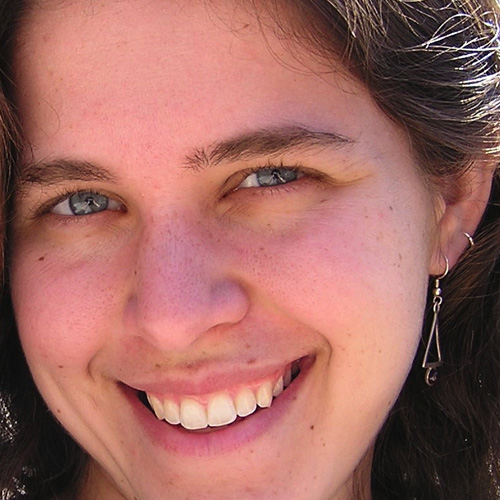
Speaker:
Maya Leventer-Roberts • Clalit Health ServicesMaya Leventer-Roberts, MD, MPH completed her residency in pediatrics at Mount Sinai. She has an undergraduate degree in physics at Wesleyan University, an MD from the Yale School of Medicine, and her MPH from the Harvard School of Public Health in Family and Community Health. She has worked with the NYC Department of Health on epidemiological methods and policy for developing and tracking interventions and public health outcomes. She is currently the Deputy Director at the Clalit Research Institute in Tel Aviv, Israel and dually appointed as Adjunct Assistant Professor in Preventive Medicine and Pediatrics at the Icahn School of Medicine at Mount Sinai, New York.
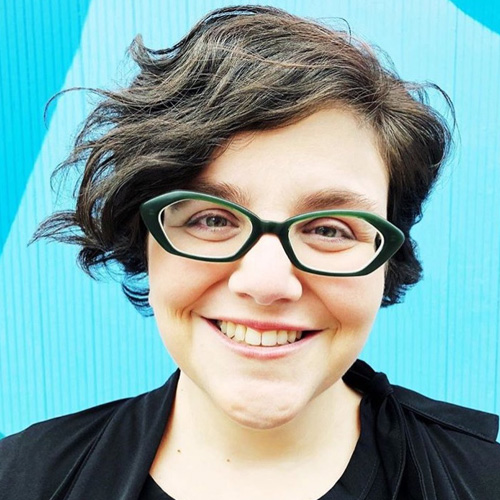
Speaker:
Noemie Elhadad • Columbia University
Speaker:
Mitchell Feldman • Mass General HospitalDr. Feldman has worked in medical informatics at the MassGeneral Hospital’s Lab of Computer Science (LCS) for 30 years. His long-standing interest is in computer-based medical diagnostic decision support systems (MDDSS). He had done independent work in this field as an undergraduate computer science major at Princeton and continued this interest while in medical school working with Drs. Jack Myers and Randy Miller on the Internist-I/QMR project at the University of Pittsburgh School of Medicine. After completing a pediatric residency at the New York Hospital Cornell Medical Center, Dr. Feldman pursued a National Library of Medicine Fellowship in medical informatics at LCS.
At LCS Dr. Feldman has worked on various medical education, computer-based medical record systems and computer simulation projects as well as the DXplain MDDSS, including several collaborations with industry. He is also active in clinical pediatric practice. He has worked on several informatics task forces and committees at both the hospital and national levels through the American Academy of Pediatrics. He is board certified in both clinical informatics and pediatrics. He is a published author of articles in peer-reviewed journals and a chapter of a medical informatics textbook. He has served as a PI on grant-sponsored research in medical informatics on the detection of key clinical findings present in the medical records of patients with high risk diagnoses prior to their diagnoses having been established. Current research involves integrating clinical diagnostic decision support with the medical record workflow using NLP to extract clinical findings as input to the DXplain MDDSS.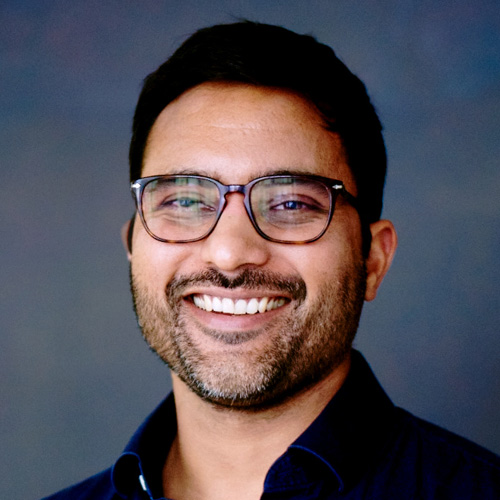
Speaker:
Saurabh Johri • Babylon HealthSaurabh leads the AI research team at Babylon. He has been with Babylon since 2016. In this time he has guided the team to develop Babylon's AI for the development of the triage, diagnostic and predictive models for healthcare, and applied the team’s research in Bayesian Machine Learning and Causal inference. Prior to Babylon, Saurabh spent time as a post-doctoral researcher at the MRC Centre for Outbreak Analysis & Modelling at Imperial College London. This work was funded by the Gates Foundation in collaboration with the CDC, and focused on the development of novel statistical machine learning methods to estimate poliovirus transmission from genetic sequence data. Before his post-doctoral work, Saurabh completed his PhD in population genetics from Imperial College London, investigating the population genetics of Tuberculosis and predicting new drug targets from whole genome sequence data.
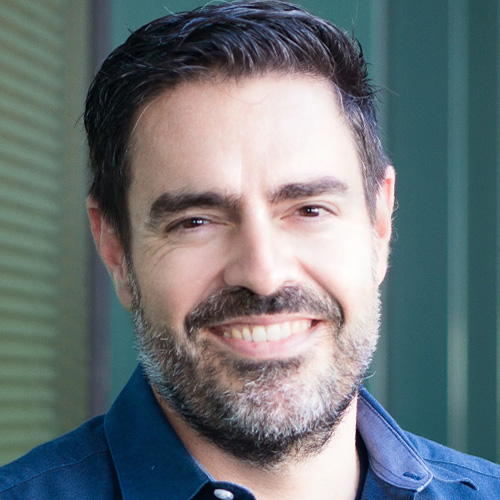
Speaker:
Xavier Amatriain • CuraiXavier Amatriain (PhD) is co-founder/CTO of Curai, a startup using AI to scale the world’s best healthcare to every human being. Prior to this, he was VP of Engineering at Quora, and Research/engineering Director at Netflix, where he led the team building the famous Netflix recommendation algorithms. Before going into leadership positions in industry, Xavier was a researcher in both academia and industry as well as a lecturer in universities in the US and Europe. With over 50 publications in different areas, Xavier is best known for his work on machine learning in general and recommender systems in particular.
- 14:00 - 14:45
-
More info [ + ]
Invited talk
Digital Phenotyping
Tom Insel • Mindstrong Health
The development of any technology evolves through a process of excitement, concern, and finally an equilibrium between the rewards and risks inherent in progress. In only a decade, the smartphone has become ubiquitous and engaging, perhaps more so than any technology in history. At the same time, this ubiquity and engagement have raised concerns about the smartphone’s potential for addiction, social isolation, and developmental stagnation. Smartphones have been described as a threat to our mental health. At the same time, the engagement and ubiquity of this device offer a solution for serious mental illness. Recognizing that we still need to find the balance between the risks and rewards of the smartphone, this lecture will describe the opportunity to use smartphones as a novel mental healthcare system at global scale.
The intensive use of the smartphone provides an unprecedented window into cognition, mood, and behavior. Digital phenotyping uses signals from the sensors, voice/speech, keyboard use, and digital exhaust (social media and search content) to measure how the user is thinking, feeling, and behaving. Digital phenotyping has attracted excitement from clinicians because it addresses an important gap in the care of people with mental illness: the lack of objective biomarkers to track progress. The science is still developing, but early studies demonstrate both the promise and the challenges of using digital data to monitor progress in people with mood and anxiety disorders as well as in psychotic disorders.
This lecture will describe the use of keyboard data as one objective measure for forecasting changes in depression and psychosis. This approach has the advantage of providing a daily readout of cognitive states through a passive, content-free data stream. By identifying early changes in clinical state and linking patients to early interventions, this predictive approach may reduce relapses and potentially preempt emergency room visits and hospitalizations, ensuring better outcomes for patients.
The success of digital mental health will require careful attention to a number of ethical issues, including but not limited to informed consent, privacy protection, and transparency of data use. Given the potential for this powerful new form of medical monitoring to be misused for surveillance and discrimination, regulation and guidelines will be essential to earn and preserve public trust.
Thomas R. lnsel, M.D., a psychiatrist and neuroscientist, is a co-founder and President of Mindstrong Health. From 2002-2015, Dr. Insel served as Director of the National Institute of Mental Health (NIMH), the component of the National Institutes of Health (NIH) committed to research on mental disorders. Prior to serving as NIMH Director, Dr. lnsel was Professor of Psychiatry at Emory University where he was founding director of the Center for Behavioral Neuroscience in Atlanta. Most recently (2015 – 2017), he led the Mental Health Team at Verily (formerly Google Life Sciences) in South San Francisco, CA. Dr. Insel is a member of the National Academy of Medicine and has received numerous national and international awards including honorary degrees in the U.S. and Europe.
- 14:50 - 15:10
-
More info [ + ]
Invited talk
When small signals make big impact
Brian Loew • Inspire
Inspire founder and CEO Brian Loew will explore what can happen when patients gather online in large numbers. Brian will describe a current research project in which a researcher is exploring a theorized correlation among certain childhood diseases and improved cancer outcomes later in life. The researcher has very strict selection criteria, and expected to find 2 or 3 people at most who fit this ‘needle in a haystack’ criteria, but Inspire discovered 48 such people.
By extracting structured data from the 1.5 billion words written by members of Inspire, and combining those data with other structured data, what insights are there that can help fuel drug development, and improve care, and accelerate research? Brian will describe the still-untapped value to researchers of patient-generated insights.
Brian Loew is the Founder and CEO of Inspire. Brian created Inspire in 2005 with the goal of accelerating medical progress through engaged patients and caregivers in safe, trusted online social networks. Brian is a frequent speaker and writer on the topics of health-focused social networks and digital health. He sits on the boards of the Robert Packard Center for ALS Research at Johns Hopkins, and New Jersey Goals of Care, and was a “Red Jacket” award recipient from PharmaVOICE magazine for his contributions to the industry.
- 15:10 - 15:30
Break
- 15:30 - 16:00
-
More info [ + ]
Invited talk
Making Healthcare Affordable & Accessible using AI and the Web
Saurabh Johri • Babylon Health
Saurabh leads the AI research team at Babylon. He has been with Babylon since 2016. In this time he has guided the team to develop Babylon's AI for the development of the triage, diagnostic and predictive models for healthcare, and applied the team’s research in Bayesian Machine Learning and Causal inference. Prior to Babylon, Saurabh spent time as a post-doctoral researcher at the MRC Centre for Outbreak Analysis & Modelling at Imperial College London. This work was funded by the Gates Foundation in collaboration with the CDC, and focused on the development of novel statistical machine learning methods to estimate poliovirus transmission from genetic sequence data. Before his post-doctoral work, Saurabh completed his PhD in population genetics from Imperial College London, investigating the population genetics of Tuberculosis and predicting new drug targets from whole genome sequence data.
- 16:00 - 16:20
-
More info [ + ]
Invited talk
Towards online universal quality healthcare through AI
Xavier Amatriain • Curai
Many will agree that the current healthcare system is broken. We spend large quantities of money and resources, but there are big unsolved problems related to both quality and accessibility. It should come as no surprise that patients turn to the web for solutions: around 5% of web queries are health-related, and ⅔ of American adults self-diagnose online. In this talk we will discuss how latest AI advances open up a direct path to a better online healthcare experience that includes the ability to engage in a multimodal conversation, get a personalized actionable recommendation, and directly connect to human healthcare providers anywhere anytime. I will describe our vision to build such an experience using AI research in areas such as NLP, vision, or automatic diagnosis in a way that augments and scales a doctor's abilities.
Xavier Amatriain (PhD) is co-founder/CTO of Curai, a startup using AI to scale the world’s best healthcare to every human being. Prior to this, he was VP of Engineering at Quora, and Research/engineering Director at Netflix, where he led the team building the famous Netflix recommendation algorithms. Before going into leadership positions in industry, Xavier was a researcher in both academia and industry as well as a lecturer in universities in the US and Europe. With over 50 publications in different areas, Xavier is best known for his work on machine learning in general and recommender systems in particular.
- 16:20 - 16:40
-
More info [ + ]
Plenary
Rebuilding healthcare delivery for California
Paul Markovich • Blue Shield of California
Paul Markovich and Blue Shield of California are working to completely rethink and rebuild the way healthcare is delivered. He will describe the company’s high tech, high touch efforts to bring health care into the digital age to create more personalized care, by leveraging the latest technology to support physicians’ practices and support a seamless patient experience between providers.
Blue Shield of California is passionate about creating a healthcare system worthy of our family and friends that is sustainably affordable. As a tax paying, nonprofit health plan, we are driven to enhance quality and lower costs for our members, not to increase profits for shareholders. Founded 80 years ago to disrupt the status quo, Blue Shield and its affiliates provide health care services to four million members today. The company has also contributed over $500 million to the Blue Shield of California Foundation since 2002, having a direct impact on health and wellness in California.
- 16:45 - 17:30
Networking and discussion
- 17:30 - 18:30


